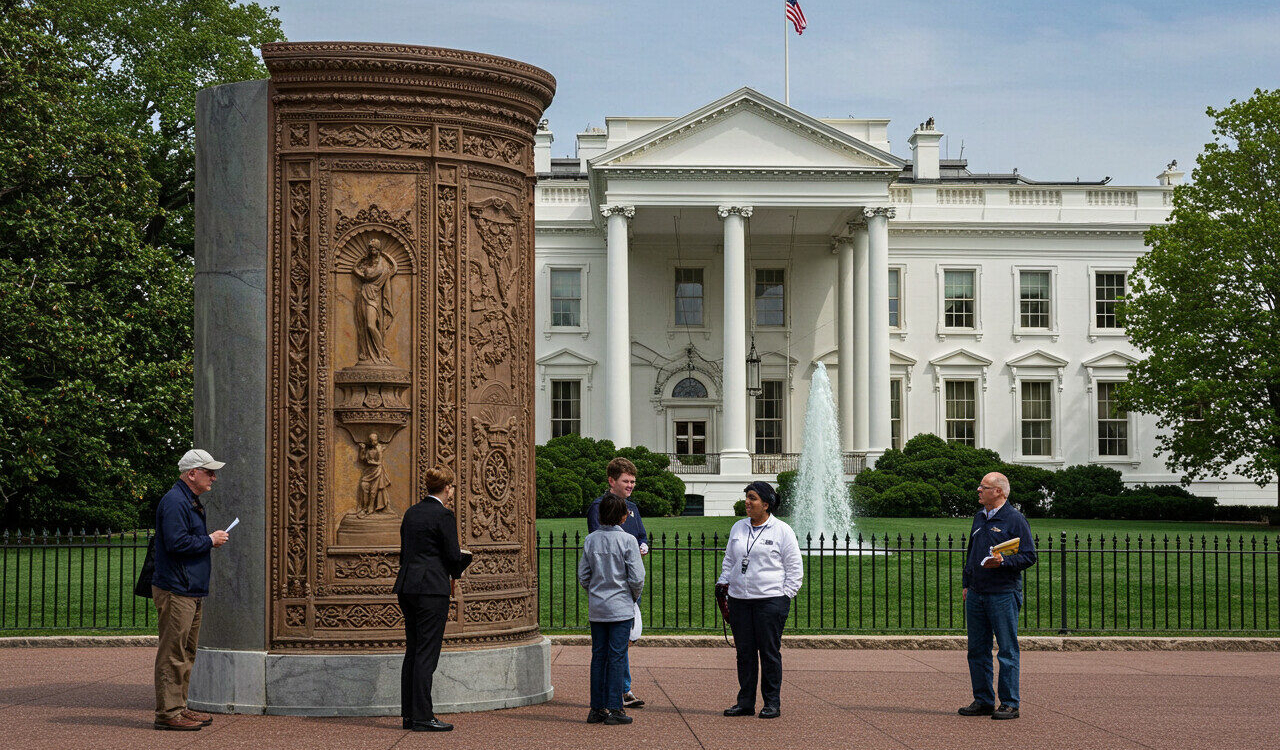White House Position on Tourism and Its Broader Effects
The current administration’s approach to tourism signals a reduced emphasis on this sector. This shift can harm communities reliant on tourism revenue and jobs. Local businesses face the risk of closure, and job losses may increase, especially affecting lower-income workers. Officials seem less concerned about these outcomes, overlooking how tourism supports employment and cultural exchange.
- Local Economies: Visitor spending on lodging, dining, and attractions fuels many towns’ income.
- Employment: Declining tourist visits can cause widespread job losses, especially in entry-level roles.
- Cultural Identity: Tourism plays a role in preserving and showcasing local culture; reduced visitors may lead to cultural erosion.
Despite the administration’s stance, tourism remains vital for many communities. Observing federal decisions affecting this sector reveals potential long-term impacts. Public engagement can ensure local voices are heard amid broader political priorities.
Economic Consequences of Declining Tourism
Reduced focus on tourism leads to significant economic losses affecting multiple layers of communities. The decline hinders growth and stagnates development in affected towns and cities.
Why this matters:
- Job Losses: Many rely on tourism-related jobs. Fewer visitors reduce business income, leading to layoffs and financial hardship.
- Small Business Struggles: Restaurants, shops, and attractions see revenue drop sharply, threatening their viability.
- Lower Tax Revenue: Tourism taxes fund critical public services, including education and safety. Reduced visitor numbers shrink this funding, risking essential programs.
Economic Indicators Before and After Tourism Decline
| Economic Indicator | Before Tourism Decline | After Tourism Decline |
|---|---|---|
| Unemployment Rate | 4% | 7% |
| Business Revenue | $2 million | $1.2 million |
| Tax Revenue | $500,000 | $300,000 |
This economic ripple effect is visible in daily life: neighbors struggle to pay bills, and favorite local spots may close permanently. Tourism is more than recreation; it sustains families and communities.
Potential Impact on Personal Finances
White House remarks on tourism losses may affect personal financial stability, particularly in regions dependent on visitor spending.
- Job Stability: Tourism-driven job cuts or reduced hours can affect steady income streams.
- Higher Costs: Businesses might increase prices to offset lost revenue, raising living expenses.
- Investment Risks: Investments tied to tourism companies may decline, impacting portfolios.
Preparing financially is crucial. Building emergency savings can buffer income disruptions, while diversifying income sources reduces dependency on a single sector.
Recommended Financial Actions
| Action | Description |
|---|---|
| Build an Emergency Fund | Save 3 to 6 months of living expenses in an accessible account. |
| Diversify Income Sources | Explore side jobs or passive income to supplement earnings. |
| Review Your Budget | Identify and reduce nonessential spending to optimize finances. |
Adjusting Travel Plans in Response to Changing Tourism Trends
Ongoing shifts require reconsideration of travel strategies to maintain enjoyable and affordable experiences.
- Reevaluate Destinations: Choose places without travel restrictions or negative local sentiment toward visitors.
- Choose Flexible Bookings: Opt for flights and accommodations with free cancellation or change policies.
- Stay Updated: Subscribe to travel alerts to monitor safety and regulations.
- Budget for Unexpected Expenses: Allocate extra funds for last-minute plan changes.
Travel Plan Comparison
| Detail | Original Plan | Adjusted Plan |
|---|---|---|
| Destination | Bali | Miami |
| Accommodation | Hotel XYZ | Airbnb ABC |
| Activities | Surfing Lessons | Beach Volleyball |
Being flexible can turn unforeseen changes into positive travel memories while reducing financial stress.
Reevaluating Budget Priorities Amid Tourism Changes
Tourism-dependent areas must adapt their economic focus to sustain growth.
- Emerging Markets: Expand offerings like eco-tourism and cultural experiences to attract new visitors.
- Local Engagement: Support community-based businesses over large chains.
- Technology Integration: Invest in virtual tours and travel apps to reach distant travelers.
Impact of Strategic Investments
| Strategy | Impact |
|---|---|
| Diverse Offerings | Attracts wider demographics |
| Local Partnerships | Strengthens local economy |
| Tech Innovations | Enhances traveler engagement |
Investment in diverse experiences and technology supports community resilience and meets evolving traveler expectations.
Strengthening Financial Plans with Flexible Travel Choices
Choosing adaptable travel options safeguards personal finances against unforeseen disruptions.
Recommendations:
- Flexible Booking Policies: Use services that allow changes or cancellations with minimal fees.
- Travel During Off-Peak Times: Save on flights and accommodations by avoiding busy seasons.
- Budget-Friendly Destinations: Select locations where expenses are lower to maximize value.
Maintaining a dedicated travel savings fund and tracking expenses promotes disciplined spending aligned with financial goals.
Estimated Travel Costs
| Expense Category | Estimated Cost |
|---|---|
| Flights | $300 |
| Accommodation | $500 |
| Food and Dining | $200 |
| Activities and Excursions | $150 |
| Souvenirs and Misc. | $100 |
Planning trips with cost awareness helps balance enjoyment with financial security.
Conclusion
Tourism’s economic and cultural importance remains clear despite reduced federal focus. The effects of declining visitor numbers reach far beyond leisure, touching local economies, employment, and personal finances. Preparing financially and adapting travel choices can mitigate risks. Communities can build resilience through strategic diversification and technology adoption, ensuring tourism’s continued role in economic stability and cultural preservation
Frequently Asked Questions
What is the White House’s current position on tourism?
The administration appears to deprioritize tourism, focusing instead on other national issues. Tourism concerns receive limited attention.
Why might tourism be less prioritized?
Other challenges like healthcare, employment, and national security may be considered more urgent, leading to less focus on tourism.
How does this affect the tourism industry?
Reduced government support can decrease funding and resources, impacting businesses and workers in the tourism sector.
What consequences might local economies face?
Communities dependent on tourism risk lower revenue, job losses, and weakened public services, affecting overall community well-being.
Written by Perkins Willow Updated by Albert Fang
Source Citation References:
+ Inspo
U.S. Bureau of Economic Analysis (BEA). (2025). Travel and Tourism Satellite Account for 2018–2023.
